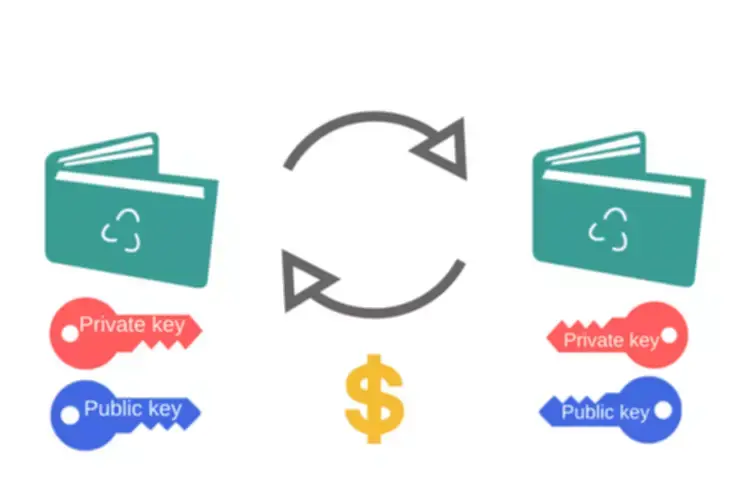Some monetary establishments have separated their prop buying and selling desks from customer-focused buying and selling to adjust to regulatory reforms. Well-liked proprietary trading methods involve offering liquidity, such as pairs buying and selling or trading across the open and shut. The Volcker Rule, part of the Dodd-Frank Act after the 2008 financial disaster, restricts banks and financial establishments from proprietary buying and selling. It goals to extend transparency, scale back conflicts of interest, and enhance risk administration.
Required Skills And Skills
You should learn about asset lessons – equities, bonds and money – and proprietary trading strategies. Monetary institutions similar to banks, hedge funds, and proprietary buying and selling corporations interact in proprietary buying and selling. Proprietary buying and selling firms present capital to merchants for carrying out trading actions in numerous monetary devices. Any revenue that is generated by the dealer is taken wholly or partially by the firm as per the profit-sharing agreement.
Proprietary trading companies are unique entities that interact in buying and selling using their very own capital to generate earnings. By employing a variety of trading methods, from quantitative fashions to high-frequency buying and selling, these firms search to maximize returns whereas managing the inherent risks. The flexibility, excessive potential for profit, and entry to superior technology make proprietary buying and selling an attractive option for skilled traders. Nonetheless, the dangers concerned, together with the potential for important capital losses, market volatility, and regulatory challenges, should not be missed. Proprietary trading refers to the apply where a firm trades financial devices (stocks, bonds, commodities, currencies, or derivatives) using its own capital to earn income. Unlike other firms that handle funds on behalf of clients or buyers, a prop buying and selling firm takes on all the danger and reward from its buying and selling actions.
Profession Progression

The rule came into impact in April 2014, and in response to it, many banks decided to not contain in proprietary trading or investing in property. Furthermore, the rule advocated how efficient it will be to separate the essential banking features from the trading actions the banks have interaction in. In Accordance to the Volcker Rule, the banks would stay extra objective in offering buyer companies than gaining earnings for themselves.
With fewer checks and counterbalances, accountability in prop trading can typically be unclear. The key difference between a normal foreign exchange dealer and a proprietary buying and selling firm is who puts up the buying and selling money. Conventional brokers facilitate buying and selling, while prop companies back merchants with their buying and selling capital. This essential difference unlocks a bigger capital and more structured assist for certified and skilled proprietary merchants.
Foreign Exchange Charting Platforms
Firms engaged in non-public trade must manage conflicts of interest that will arise after they use clients’ information or resources for their very own profit. One of the main challenges for such corporations is to balance their business actions with their obligations to shoppers.Firms use varied methods to manage conflicts of interest. These embody spinning off operations as a separate enterprise, ensuring transparency in deal processing, controlling risk and growing codes of ethics.
It Is essential to recognise that each working at a proprietary trading agency and owning one come with their own set of challenges and dangers. The choice to pursue either path ought to be primarily based on a person’s risk tolerance, monetary state of affairs, career goals, and willingness to tackle duty. One of probably the most significant advantages of proprietary trading is the flexibility within the quantity of threat capital a dealer can qualify for. Amounts vary wherever from $25,000 to upwards of $1,000,000, relying on the agency and monetary institutions concerned. Proprietary buying and selling is the act of a company (prop firm) hiring third parties (prop traders) to commerce their (the agency’s) personal cash.
- This form of trading ensures that the dealer doesn’t need to take any leverage that bears fastened prices to generate greater income.
- Look for corporations with a monitor record of success and constructive reviews from present or former traders.
- This might put the firm at a drawback, since it might encourage merchants to pursue extraordinarily dangerous trades.
- In response to the Volcker Rule, numerous banks either separated their proprietary buying and selling operations from their core activities or ceased these operations altogether.
Companies implement strict risk controls to attenuate potential losses, because the firm’s capital is at stake. This can embody setting limits on the size of positions, utilizing stop-loss orders, and repeatedly monitoring market conditions. Superior danger management methods may also involve hedging or diversifying across different asset courses to mitigate exposure.
Download the Bajaj Finserv App today and experience the convenience of managing your funds on one app. Think About how participation within the Proof of identity (blockchain consensus) problem aligns together with your long-term buying and selling objectives. Advanced degrees or certifications can offer you a strong theoretical foundation and reveal your commitment to the sphere. It’s necessary to notice that these methods may be combined for even greater success. Even although there are tons of advantages for Prop Buying And Selling, it isn’t a bed of roses.
The markets are ever-evolving, and your capability to adjust to altering circumstances might help keep you forward of the competitors and positioned to make worthwhile trades. Often accumulating data and abilities might help you keep on top of market tendencies and enhance your prop buying and selling expertise cfd liquidity providers. Prop trading firms commonly provide access to well-liked trading platforms with analytics and real-time market data. Financial institutions can diversify their revenue streams via prop trading.

Proprietary trading, commonly often identified as prop trading, is a method of taking part in the market without utilizing your money. As An Alternative, prop traders https://www.xcritical.com/ use funds provided by a third party, which hires traders regionally and internationally. As A Result Of prop traders use the firm’s capital to make speculative bets purely for earnings, they’ve extra latitude and appetite for danger than portfolio managers, who handle other people’s money.
Traders profit from preserving a considerable share of income, and the structured surroundings, together with threat management guidelines and revenue targets, fosters trading self-discipline and success. Proprietary trading corporations make money by capitalizing on market inefficiencies, price discrepancies, and short-term trading alternatives. Dedicate the required effort and time to buying and selling, analysis, and strategy refinement. Some proprietary traders act as liquidity providers, contributing to market liquidity by actively participating in buying and selling activities. Sure, proprietary trading can be difficult because of the complexity of monetary markets, the need for accurate evaluation, and the inherent dangers concerned.
With an growing demand of aspiring traders who want to get a funded account, there are increasingly more prop trading corporations popping up these days. ProprietaryFirms.com is an web site dedicated to reviewing prop buying and selling companies. Proprietary buying and selling is subject to various laws, which range by country and market. Modifications in laws or new laws can have an result on the operations of prop buying and selling companies. For instance, in the us, the Volcker Rule restricts proprietary trading actions by banks, although non-bank prop trading corporations are not topic to this restriction.





